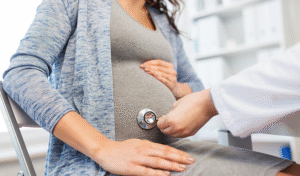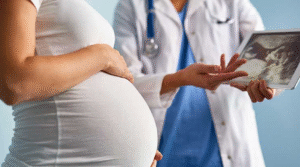
The 7 Most Common High-Risk Pregnancy Complications (And How We Manage Them)
After 30 years in obstetrics, I’ve successfully managed these complications hundreds of times. What feels like a crisis to you is routine care for me.

Maternal and fetal medicine is a specialised branch of healthcare that focuses on the well-being of both expectant mothers and their unborn babies. It combines the expertise of obstetrics (the care of pregnant women) and perinatology (the care of the fetus) to provide comprehensive care throughout pregnancy.
One of the key goals of fetal medicine is to ensure a healthy pregnancy and childbirth for both the mother and baby. This involves monitoring the progress of the pregnancy closely and addressing any potential risks or complications that may arise.
Fetal medicine specialists, often referred to as maternal-fetal medicine specialists or perinatologists, are highly trained doctors who have additional expertise in managing high-risk pregnancies and complex medical conditions. They work closely with obstetricians, midwives, and other healthcare providers to develop personalised care plans for each mother. Experts in detecting birth defects, fetal medicine specialists use advanced imaging techniques, such as ultrasounds and fetal echocardiography, to assess the health and development of the fetus.
In cases where there are concerns about the health of the mother or baby, fetal medicine specialists can provide advanced diagnostic and treatment options. This may include interventions to manage conditions such as gestational diabetes, preeclampsia, or fetal abnormalities.
Choosing fetal medicine for a high-risk pregnancy offers specialised care and expertise tailored to both the mother and baby’s unique needs. Some benefits of choosing fetal medicine for high risk pregnancies include:
Overall, choosing fetal medicine for a high-risk pregnancy ensures comprehensive care, specialised expertise, and personalised support for expectant families, ultimately leading to the best possible outcomes for both mother and baby.
A high-risk pregnancy involves factors like maternal age, medical conditions, multiple pregnancies, previous complications, genetic factors, and lifestyle choices. Conditions such as diabetes, hypertension, and preeclampsia can complicate pregnancies. Women with high-risk pregnancies need specialised care to mitigate risks and ensure positive outcomes for both mother and baby.
Factors considered for high-risk pregnancy include:
Women aged under 17 or over 35
Carrying twins, triplets, or more increases the risk of complications.
Women who have experienced miscarriages, preterm births, or stillbirths may be at higher risk.
Certain genetic conditions or family histories such as high blood pressure, diabetes, or being HIV-positive may increase the risk of birth defects or genetic disorders.
While a high-risk pregnancy doesn’t always imply that your pregnancy will be more challenging or difficult, it may require consulting a fetal medicine specialist and undergoing additional monitoring compared to a low-risk pregnancy.
Our Services

After 30 years in obstetrics, I’ve successfully managed these complications hundreds of times. What feels like a crisis to you is routine care for me.

This article brings a clear, science-based view to help families navigate pregnancy, newborn life, and early childhood while keeping the beloved family pet right where it belongs: at home.

In my 30 years as an obstetrician, I’ve seen just about every pregnancy complication there is. I’ve also taught countless medical residents and fellow physicians in the United Kingdom on how to manage these complications and I have lectured around the world on managing pregnancy complications.

With RSV season approaching this September, now is the time to talk about one of the newest maternal vaccines we have: the RSV (Respiratory Syncytial Virus) vaccine.

Perimenopause refers to the transitional phase before menopause, when the ovaries gradually begin to produce less estrogen. It can last anywhere from a few months to several years, and typically begins in a woman’s 40s—but it can start earlier or later.

If you’re pregnant and facing the Dubai heat — don’t worry, you’ve got this. Yes, the temperatures rise, but so does your strength and resilience. You’re growing a human being (how cool is that?), and while the summer sun can feel intense, there’s no need to fear it.